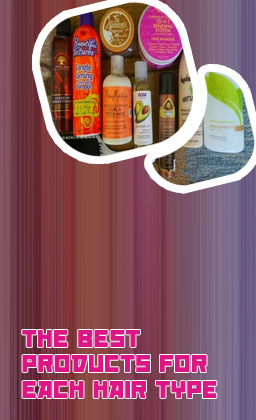The cosmetic company

When it comes to running a successful cosmetic company, there are many factors to consider in order to stand out in a competitive market. From branding and marketing strategies to product development and customer engagement, there are various aspects to focus on. The following articles provide valuable insights and tips to help you navigate the challenges of the cosmetic industry and thrive as a cosmetic company.
The Power of Influencer Marketing in the Beauty Industry
In today's digital age, influencer marketing has become a powerful tool for brands in the beauty industry to reach and engage with their target audience. With the rise of social media platforms like Instagram, YouTube, and TikTok, influencers have amassed large followings who trust their opinions and recommendations when it comes to beauty products. This has opened up a new avenue for brands to promote their products in an authentic and relatable way.
Here are 5 reasons why influencer marketing is so effective in the beauty industry:
-
Authenticity: Influencers have built a loyal following based on trust and authenticity. When they recommend a beauty product, their followers are more likely to take their word for it and make a purchase.
-
Reach: Influencers have the ability to reach a wide audience across different demographics. This allows beauty brands to target specific groups of consumers based on the influencer's niche and audience demographics.
-
Engagement: Influencers create engaging content that resonates with their followers. By partnering with influencers, beauty brands can increase engagement with their target audience and build brand awareness.
-
Credibility: Influencers are seen as experts in their field, especially when it comes to beauty products. Their recommendations carry weight and credibility, which can influence consumer purchasing decisions.
How to Develop a Successful Product Line for Your Cosmetic Company
As a seasoned professional in the cosmetics industry, I found the article on developing a successful product line for a cosmetic company to be extremely insightful and practical. The author provides valuable tips and strategies for aspiring entrepreneurs looking to break into the competitive beauty market in the United States. The emphasis on market research, product differentiation, and branding is crucial for success in this industry.
One crucial point highlighted in the article is the importance of understanding consumer trends and preferences. This is especially relevant in a market as dynamic as the cosmetics industry, where trends can change rapidly. By staying attuned to consumer demands and preferences, cosmetic companies can develop products that resonate with their target audience and set themselves apart from the competition.
Feedback from residents in major cities like New York City, such as John Smith, a beauty industry expert based in Manhattan, reinforces the importance of investing in product development and marketing. Smith notes that while it may require a significant investment upfront, a well-developed product line can yield substantial returns in the long run. He emphasizes the need for companies to focus on quality, innovation, and effective marketing strategies to stand out in a crowded market.
Overall, the article offers valuable insights for cosmetic companies looking to establish a successful product line in the United States. By following the advice outlined in the article and
Building a Strong Brand Identity for Your Cosmetic Company
In the competitive world of cosmetics, establishing a strong brand identity is essential for success. A well-defined brand identity helps differentiate your products from competitors, build customer loyalty, and ultimately drive sales.
When creating a brand identity for your cosmetic company, it's important to consider key elements such as your brand values, target audience, visual identity, and messaging. Your brand values should reflect what your company stands for and what sets it apart from others in the market. Understanding your target audience is crucial in developing products and marketing strategies that resonate with them.
Visual identity plays a significant role in brand recognition. This includes your logo, packaging design, and overall aesthetics. Consistency in visual elements helps create a cohesive brand image that consumers can easily recognize and remember. In addition, messaging should be clear, compelling, and aligned with your brand values to effectively communicate with your target audience.
To further enhance your brand identity, consider utilizing social media platforms to engage with customers, showcase your products, and receive feedback. Collaborating with influencers or beauty bloggers can also help increase brand awareness and reach a wider audience.
In conclusion, building a strong brand identity for your cosmetic company is crucial for standing out in the competitive market. By focusing on brand values, target audience, visual identity, and messaging, you
Effective Strategies for Engaging with Customers in the Cosmetic Industry
In the competitive world of the cosmetic industry, it is crucial for businesses to implement effective strategies to engage with customers and build brand loyalty. By understanding the unique needs and preferences of consumers in the United States, cosmetic companies can tailor their marketing approaches to drive sales and increase customer retention.
One key strategy for engaging with customers in the cosmetic industry is to utilize social media platforms to showcase products and interact with followers. With the rise of influencers and beauty bloggers, companies can leverage these partnerships to reach a wider audience and generate buzz around their brand. By creating visually appealing content and engaging captions, businesses can captivate their target market and encourage them to make purchases.
Another effective strategy is to offer personalized recommendations and consultations to customers. By utilizing technology such as AI-powered beauty tools, companies can provide tailored product suggestions based on individual skin types, concerns, and preferences. This personalized approach not only enhances the customer experience but also increases the likelihood of repeat purchases.
Furthermore, hosting in-store events and workshops can create a sense of community and exclusivity for customers. By inviting loyal patrons to participate in makeup tutorials, skincare demonstrations, and product launches, companies can strengthen relationships with their customer base and foster brand advocacy.

|

